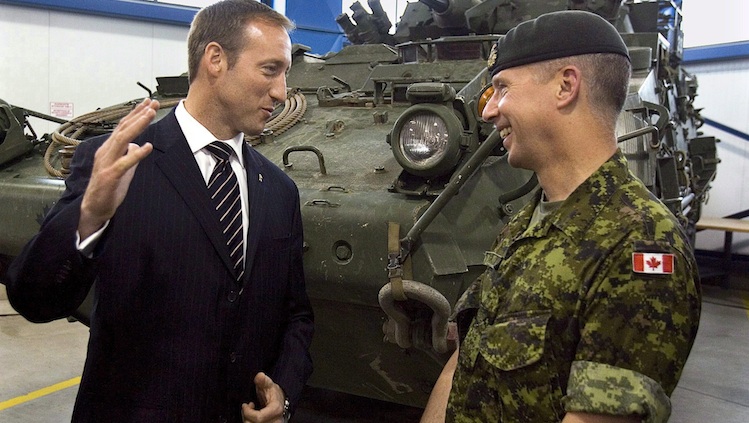No mystery in the program behind the general’s moving costs
John Geddes adds context to the debate about moving costs
(CP Photo)
Share

From the shocked tone of Defence Minister Rob Nicholson’s prepared statement on the more than $72,000 his department spent moving Andrew Leslie from one Ottawa house to another when the former general retired from the Forces, you’d think this government had never before had cause to take a close look at their relocation program.
Having preemptively declared that Leslie’s moving costs “appear grossly excessive,” Nicholson went on to say that he “will be asking” his officials to explain. It’s hard to think of any good reason for the minister to offer his gut reaction first and only afterwards ask his department to brief him—aside, of course, from the fact that Leslie is now advising Justin Trudeau as a high-profile Liberal recruit.
Leslie responded by saying that he merely availed himself of a standard relocation benefit available to anyone retiring after long service in the military or the RCMP. That $72,000-plus figure looks large, of course, but the former commander of Canadian troops in Afghanistan noted that the whole process was managed by “a third party provider,” not directly by him, and the total includes not just the cost of moving his possessions, but also legal and real-estate fees.
Is it possible that Nicholson’s surprised reaction reflects the government’s unawareness, until the Leslie story surfaced over the weekend, with the way their own so-called Integrated Relocation Program works? I can’t imagine why. It’s not as if the program hasn’t been scrutinized closely since the Conservatives took office.
In the fall of 2006, the Auditor General presented a detailed report on the program, complete with a list of recommendations, which the government broadly accepted. It’s a significant file that you might expect a defence minister to have no trouble getting briefed up on: Back in 2005, the year the AG examined, it handled about 15,000 military and RCMP relocations and cost about $272 million. (I’ve asked for the most recent figures and will update this post when Defence gets back to me.)
The AG’s 2006 report dealt largely with the bidding process for real estate firms that compete to run the relocation service. Those details don’t have anything to do with the Leslie story. But the timing is relevant. This program was, after all, the subject of close attention in 2007, when the government committed to seriously review key elements of it as a result of the AG’s findings. That’s not the distant past. So Nicholson shouldn’t have any difficulty summoning senior officials to give him a very up-to-date appraisal.
What if they tell him the relocation program is running well and fulfilling its intended purpose? In that case, I guess there’s no policy debate to be had here, and it comes down to Nicholson’s assertion that what’s at issue is “a matter of judgement” on the the part of Leslie. The minister seems to be implying that Leslie should have asked the independent contractor overseeing his relocation how much it was costing, made a personal judgement that the amount was too high, and then voluntarily opted out of the program.
Or maybe Nicholson will conclude, after he gets around to listening to the explanation he’s requested from his own department, that it’s a bit much to put the onus on individual retiring soldiers to make that sort of ad hoc assessment. In that case, any problem with the design of the relocation program that results in excessive costs would be entirely the responsibility of the minister.